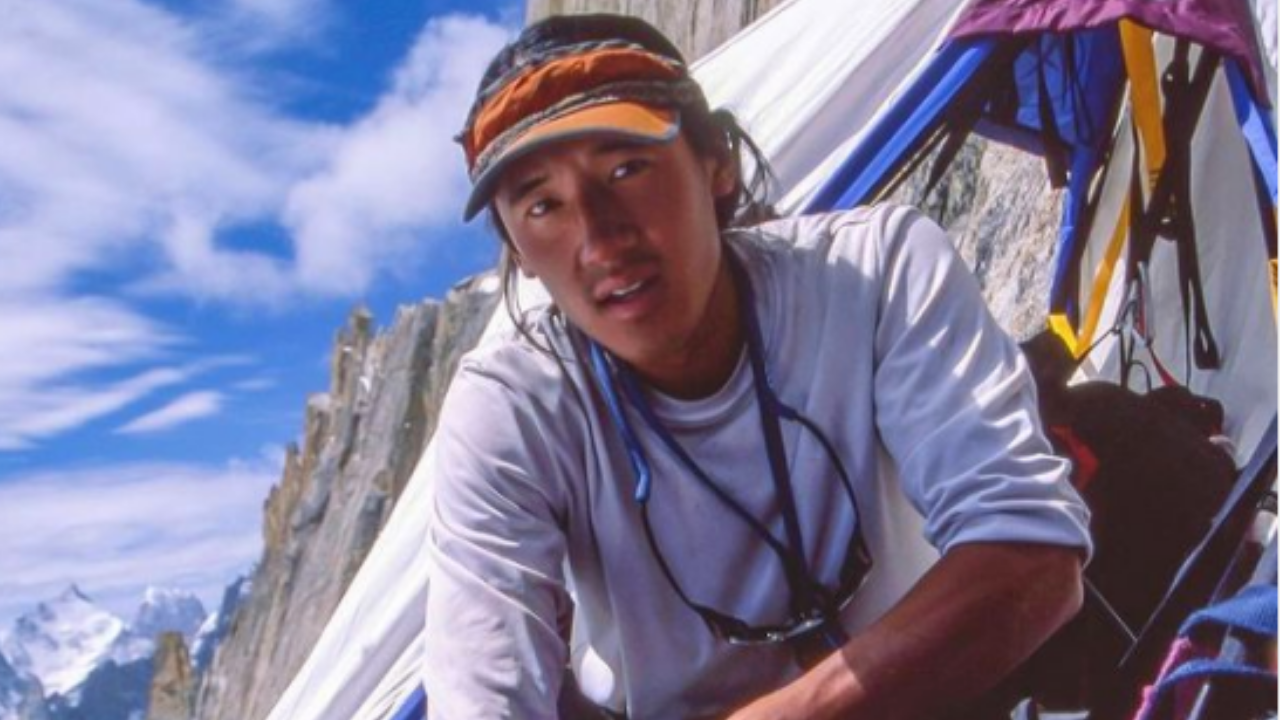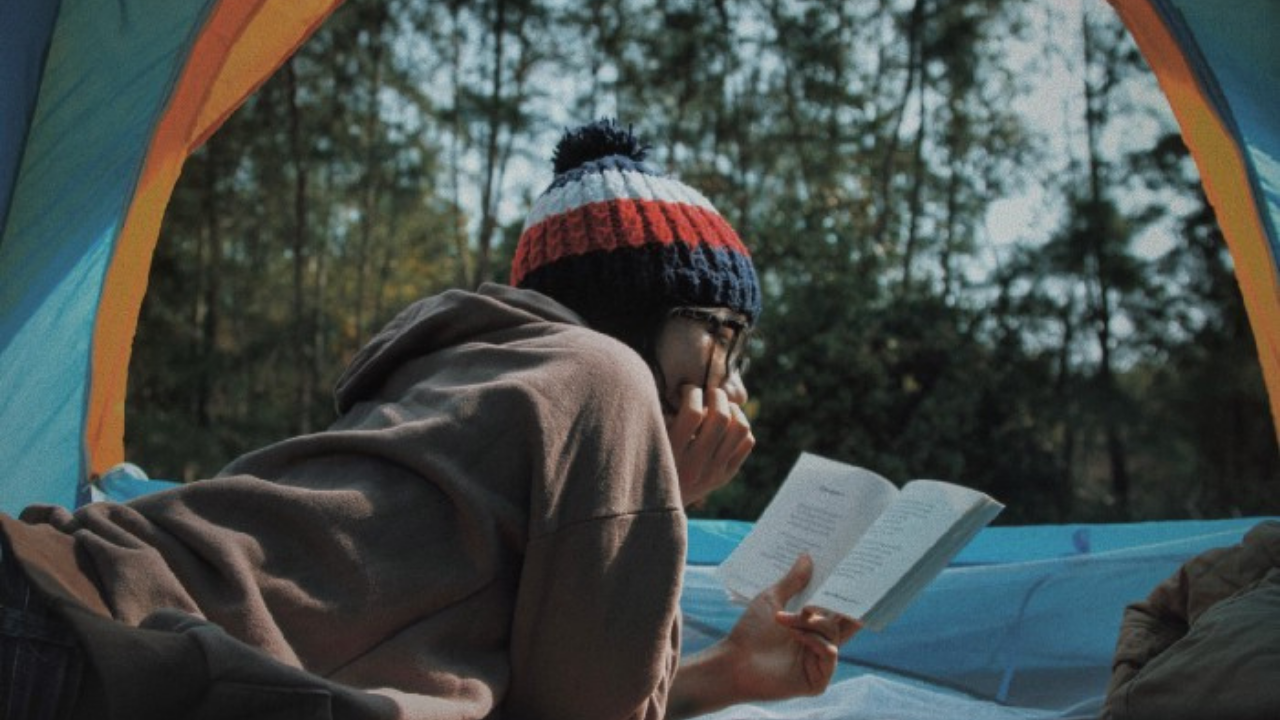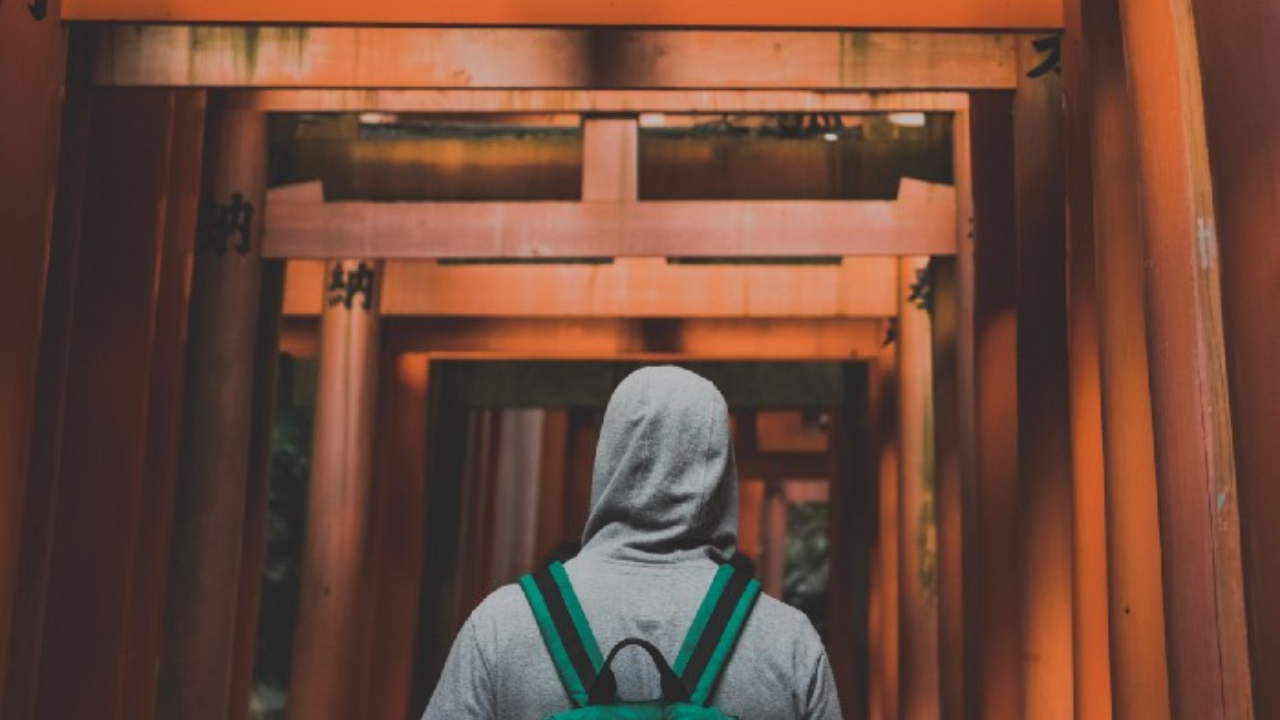Questing While BIPOC
Nov 05, 2021
Meet Jimmy Chin. He’s a world-renowned National Geographic photographer that brings us into incredibly intimate relationship with mountainscapes from all around the world (*you should definitely follow JimmyChin)
Jimmy and I have something in common. We both know that questing is a privilege. These are the journeys we choose to make room for and command all of our resourcefulness to make happen.
The Solo Quest is a signature element of the Alchemical Leadership program at Wayfinding. It allows the leaders who participate in it to steward their own evolution through ceremony and storytelling.
Like much in this world, safety and the ability to quest alone into nature is not distributed equally.

Photo by Lê Tân
For participants of color, those who identify as LGBTQ, women, parents, and for those without much experience being in the outdoors, the challenges posed by their quest design can be sobering.
This ceremony comes with real risk, to your inner and outer being. Your task in your design is to make choices to ensure your experience follows your sensing, is appropriate to your experience level, and honors the intention you are holding.

Photo by 🐣 Luca Iaconelli
These are some thoughts we offered to our recent cohort. Curious what more those in our community would add to this conversation??
Feeling Contained Regionally.
You get to design your quest. Part of the architecture of that design is doing it in a way to allow you to constructively be in contact with your shadow and your power. Feeling hypervigilant in areas or lands where you would consciously or unconsciously fear for your safety, or just generally being in places you feel uncomfortable or unwelcome is NOT going to allow for that. Look to visit lands where you know people who look like you visit and often report feeling safe and welcomed.
Feeling Contained with Your Host & Their Space.
If you are booking a site through platforms like Airbnb or Hipcamp, checking reviews to see if BIPOC folks are saying positive things is a good rule of thumb. Being on a private piece of land can also help you feel contained since you won’t have strangers wandering by. But, it also can feel more comforting staying on a site where there will be people nearby so if something doesn’t feel right, others will be close enough to hear you and come help.
Feeling Contained Where You Sleep.
Even though I’m a big guy and former rugby player, and I have access to all the privilege that comes with that, I still had moments when I was straight-up terrified when I was camping alone. Beyond the sounds we hear in our outer environment, these solo trips can come with a lot of fear as we tune into the sounds that arise in our inner being. You need to do what feels right for your body. Having a physical building with a locked door can do wonders for feeling safe & secure. If you do want to be in a tent, precautions you can take are bringing a small lock for the tent zipper.
Feeling Contained with the Other Humans You Might Encounter.
Alexa Everson share’s her thoughts as a black woman feeling safe in the outdoors Melanin Basecamp and it's more real than anything I can communicate. The fact is, there’s a higher chance of encountering a predatory human than a predatory animal for people like her. Carrying pepper spray/gel, having an extra pair of men’s shoes if you present as a female to leave outside to signal you’re not alone, having something like a whistle to raise an alarm all can help you feel safer. In my cohort, my friend who identifies as a black woman decided to make her quest as a day trip in nature in silence, with her partner, and they journeyed together. That’s what she felt safe doing in the area she lives.
Feeling Secure with Your Outdoor Abilities.
Outdoor spaces (federal lands, national forests) are primarily visited by white people (70%) with people of color, and especially Black and Latinx people making up a serious minority. It’s only been the last 50yrs since the civil rights act that people of color have been welcome in these spaces. I was lucky enough to get experiences as a kid upstate NY through the Boy Scouts. Most of us who have parents coming from backgrounds of color / immigrant parents likely didn’t get outdoor experiences. Pick what feels doable. If all you want to do is make a fire for fun, then pick a spot that has heating. If its the fall, temps can get cold at night and depending on your fire-making skills, relying on them for warmth could be too much. If you want to do more, that’s your choice too.
Feeling Like You Belong in Nature.
Imagining ourselves in the space as a person of color alone can be a big hurdle. The cultural adversary predominantly depicts white, hetero cisgender men decked out in flannel in outdoorsy or rural spaces. This explicitly and implicitly communicates to us and our loved ones that we (as people of color) or anyone else who doesn’t connect with that norm, don’t belong/are not welcome. We do belong. And there are many organizations trying to confront this (Color the Trails, Melanin Basecamp, Outdoor Afro, Black Folks Camp Too)
Doing quest work should always be in greatest service to you, the lands you are visiting, and what feels right for your intention. This too is part of the work of designing the ceremony.
Nature (both the nature that exists within us and our outer nature) belongs to no one. You too, get to revel in her gifts.







